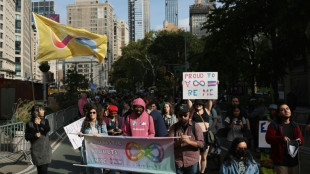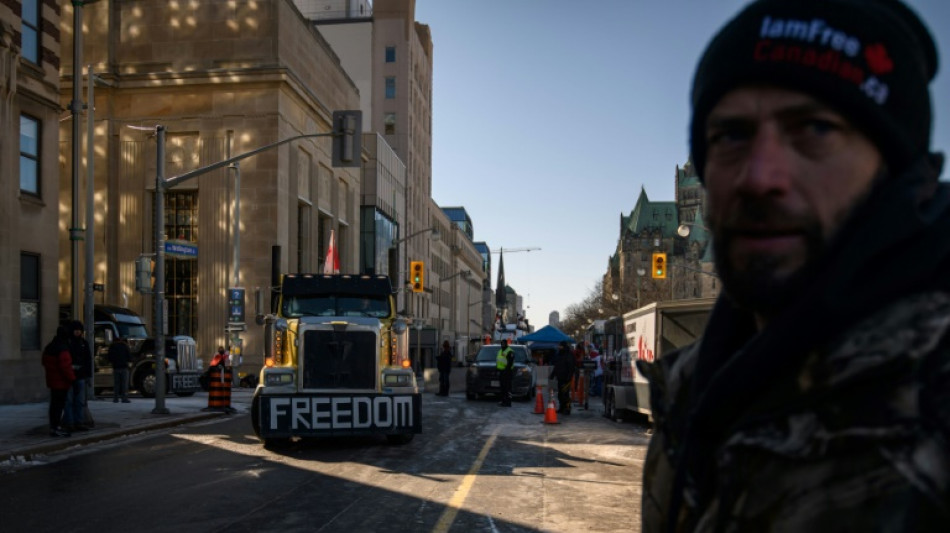
-
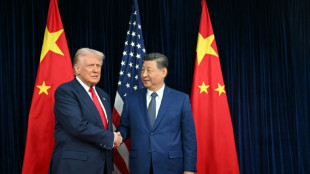 Asia markets fluctuate as investors mull Trump-Xi talks
Asia markets fluctuate as investors mull Trump-Xi talks
-
Trump, Xi ease fight on tariffs, rare earths
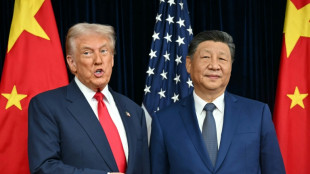
-
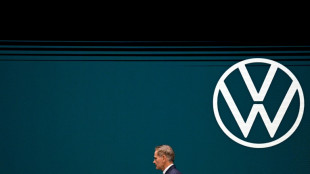 Volkswagen posts 1-billion-euro loss on tariffs, Porsche woes
Volkswagen posts 1-billion-euro loss on tariffs, Porsche woes
-
'Fight fire with fire': California mulls skewing electoral map

-
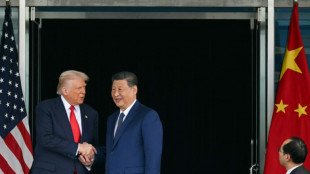 Fentanyl, beans and Ukraine: Trump hails 'success' in talks with Xi
Fentanyl, beans and Ukraine: Trump hails 'success' in talks with Xi
-
'Nowhere to sleep': Melissa upends life for Jamaicans
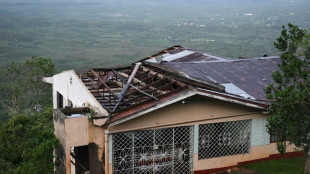
-
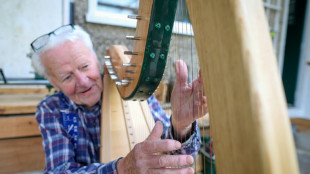 Irish octogenarian enjoys new lease on life making harps
Irish octogenarian enjoys new lease on life making harps
-
Tanzania blackout after election chaos, deaths feared
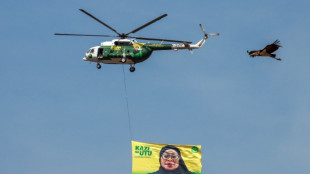
-
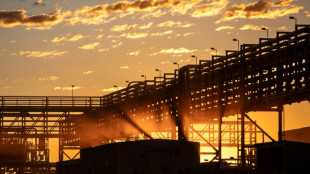 G7 meets on countering China's critical mineral dominance
G7 meets on countering China's critical mineral dominance
-
Trump hails tariff, rare earth deal with Xi
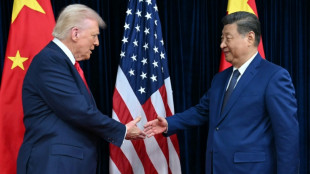
-
 Court rules against K-pop group NewJeans in label dispute
Court rules against K-pop group NewJeans in label dispute
-
India's Iyer says 'getting better by the day' after lacerated spleen

-
 Yesavage fairytale carries Blue Jays to World Series brink
Yesavage fairytale carries Blue Jays to World Series brink
-
Bank of Japan keeps interest rates unchanged

-
 Impoverished Filipinos forge a life among the tombstones
Impoverished Filipinos forge a life among the tombstones
-
Jokic posts fourth straight triple-double as Nuggets rout Pelicans

-
 UN calls for end to Sudan siege after mass hospital killings
UN calls for end to Sudan siege after mass hospital killings
-
Teenage Australian cricketer dies after being hit by ball

-
 As Russia advances on Kupiansk, Ukrainians fear second occupation
As Russia advances on Kupiansk, Ukrainians fear second occupation
-
Trade truce in balance as Trump meets 'tough negotiator' Xi

-
 China to send youngest astronaut, mice on space mission this week
China to send youngest astronaut, mice on space mission this week
-
Yesavage gem carries Blue Jays to brink of World Series as Dodgers downed

-
 With inflation under control, ECB to hold rates steady again
With inflation under control, ECB to hold rates steady again
-
Asia stocks muted with all eyes on Trump-Xi meeting

-
 Personal tipping points: Four people share their climate journeys
Personal tipping points: Four people share their climate journeys
-
Moto3 rider Dettwiler 'no longer critical' after crash: family

-
 US economy in the dark as government shutdown cuts off crucial data
US economy in the dark as government shutdown cuts off crucial data
-
Trump orders nuclear testing resumption ahead of Xi talks

-
 'Utter madness': NZ farmers agree dairy sale to French group
'Utter madness': NZ farmers agree dairy sale to French group
-
Samsung posts 32% profit rise on-year in third quarter

-
 30 years after cliffhanger vote, Quebec separatists voice hope for independence
30 years after cliffhanger vote, Quebec separatists voice hope for independence
-
Taxes, labor laws, pensions: what Milei wants to do next

-
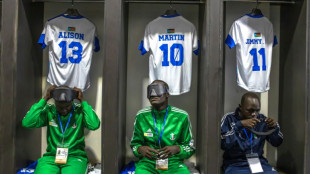 South Sudan's blind football team dreams of Paralympic glory
South Sudan's blind football team dreams of Paralympic glory
-
US says 4 killed in new strike on alleged Pacific drug boat
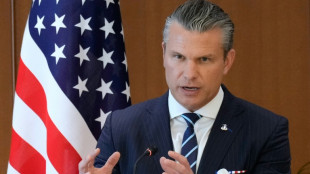
-
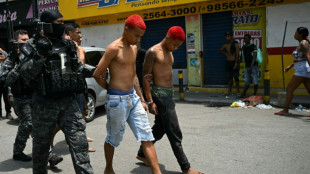 What we do and don't know about Rio's deadly police raid
What we do and don't know about Rio's deadly police raid
-
'They slit my son's throat' says mother of teen killed in Rio police raid
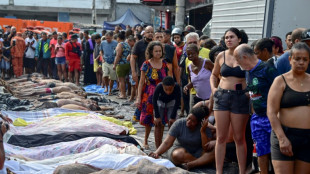
-
 Arteta hails 'special' Dowman after 15-year-old makes historic Arsenal start
Arteta hails 'special' Dowman after 15-year-old makes historic Arsenal start
-
Google parent Alphabet posts first $100 bn quarter as AI fuels growth
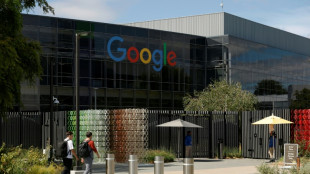
-
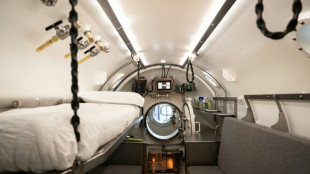 Underwater 'human habitat' aims to allow researchers to make weeklong dives
Underwater 'human habitat' aims to allow researchers to make weeklong dives
-
Maresca slams Delap for 'stupid' red card in Chelsea win at Wolves

-
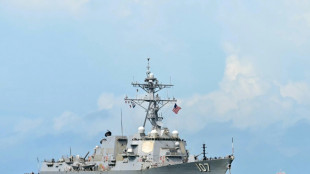 'Non-interventionist' Trump flexes muscles in Latin America
'Non-interventionist' Trump flexes muscles in Latin America
-
Slot defends League Cup selection despite not meeting 'Liverpool standards'
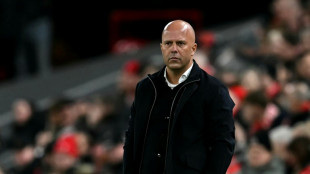
-
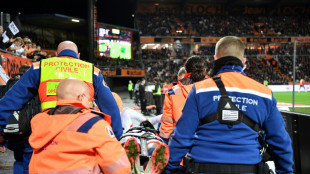 'Poor' PSG retain Ligue 1 lead despite stalemate and Doue injury
'Poor' PSG retain Ligue 1 lead despite stalemate and Doue injury
-
Liverpool crisis mounts after League Cup exit against Palace

-
 Kane scores twice as Bayern set European wins record
Kane scores twice as Bayern set European wins record
-
Radio Free Asia suspends operations after Trump cuts and shutdown
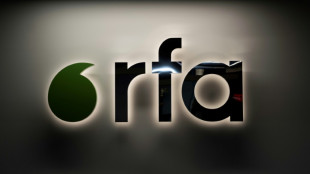
-
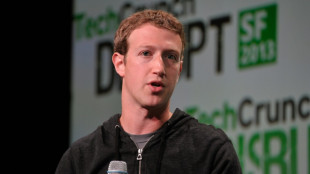 Meta shares sink as $16 bn US tax charge tanks profit
Meta shares sink as $16 bn US tax charge tanks profit
-
Dollar rises after Fed chair says December rate cut not a given
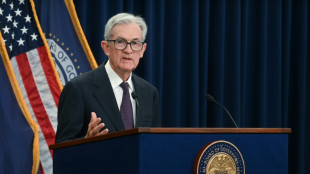
-
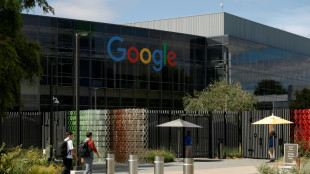 Google parent Alphabet posts first $100 bn quarter as AI drives growth
Google parent Alphabet posts first $100 bn quarter as AI drives growth
-
Rob Jetten: ex-athlete setting the pace in Dutch politics
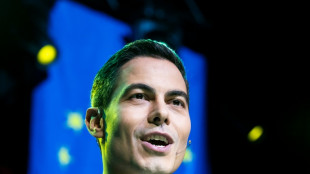

Canada protesters dig in as police set to use new powers
Backed by freshly invoked emergency powers, Canadian officials on Tuesday looked to bring an end to weeks of trucker-led protests that have paralyzed the capital Ottawa and snarled vital border crossings with the United States.
In the capital, truckers hardened their stance -- moving big rigs into positions that could be more difficult to dislodge, and posted signs on their vehicles that read: "Hold the line."
Several protesters told AFP they were unruffled by Prime Minister Justin Trudeau's invoking of the Emergencies Act and calls to the protesters to end their "illegal" blockades and "go home."
It marked only the second time in Canadian history such powers have been invoked in peacetime.
"Truckers are not going anywhere," said Tyler, who gave only his first name, sitting at the wheel of his massive truck parked outside parliament.
With authorities poised to act, Ottawa police chief Peter Sloly abruptly resigned, a city councillor said.
Sloly had been facing intense criticism from politicians and residents over a failure to dislodge the protesters. He had said repeatedly that he lacked the resources to do so safely.
Police had already cleared demonstrators from the Ambassador Bridge connecting Windsor, Ontario and Detroit in the US state of Michigan -- arresting 46 people and seizing 37 vehicles.
Meanwhile protesters on Tuesday departed a border checkpoint in Alberta, leaving only one crossing in Manitoba still blocked.
"The (Alberta) blockade is done," RCMP Superintendent Roberta McKale told AFP. "Everybody is voluntarily leaving. They are choosing to go."
As threats of violence lingered, federal police on Monday had swooped in and arrested about a dozen protesters with rifles, handguns, body armor and ammunition at the border between Coutts, Alberta and Sweet Grass, Montana.
"The group was said to have a willingness to use force against the police if any attempts were made to disrupt the blockade," the Royal Canadian Mounted Police said in a statement.
Public Safety Minister Marco Mendicino also expressed concern about a truckload of firearms stolen in Ontario, while describing protest leaders as militants "driven by extremist ideology to overthrow the government."
- Mixed reactions -
Canada's so-called "Freedom Convoy" started with truckers protesting against mandatory vaccines to cross the border with the United States.
But its demands grew to include an end to all Covid-19 health measures and, for many of the protesters pushing a wider anti-establishment agenda, the toppling of Trudeau's Liberal government.
They have also triggered copycat movements from France to New Zealand, with US truckers mulling similar rallies.
The Emergencies Act (formerly called the War Measures Act) was previously used by Trudeau's father, former prime minister Pierre Trudeau, during the October Crisis of 1970.
It saw troops sent to Quebec to restore order after the kidnappings by militant separatists of a British trade attache and a Quebec minister, Pierre Laporte, who was found strangled to death in the trunk of a car.
Justin Trudeau said the military would not be deployed at this time.
Rather, said officials, the law would be used to strengthen police powers to arrest protesters, seize their trucks and freeze their bank accounts, and even compel tow-truck companies to help clear blockades.
Crypto currency exchanges and crowdfunding sites -- used by the truckers to raise millions of dollars in Canada and the United States -- must also now report large and suspicious transactions to the money laundering and terrorism financing watchdog FINTRAC.
Trudeau said these measures would be "time-limited" and "geographically targeted."
Several provincial premiers who have started to ease Covid-19 health restrictions denounced their use, while the Canadian Civil Liberties Association accused the federal government of not having met the threshold for invoking the act.
Ontario Premier Doug Ford was among the standouts, telling a news conference Tuesday that the dire economic impacts of the protests required a strong response.
"I don't care about the politics. I care about making sure we have a vibrant area to do business in and... whatever it takes to get the police the tools to go in there and get these people moving on," he said, four months before Ontario elections.
Trudeau's minority Liberal government also has the support of the small leftist New Democratic Party to push through approval of the measures when parliament weighs in next week.
M.Ouellet--BTB




